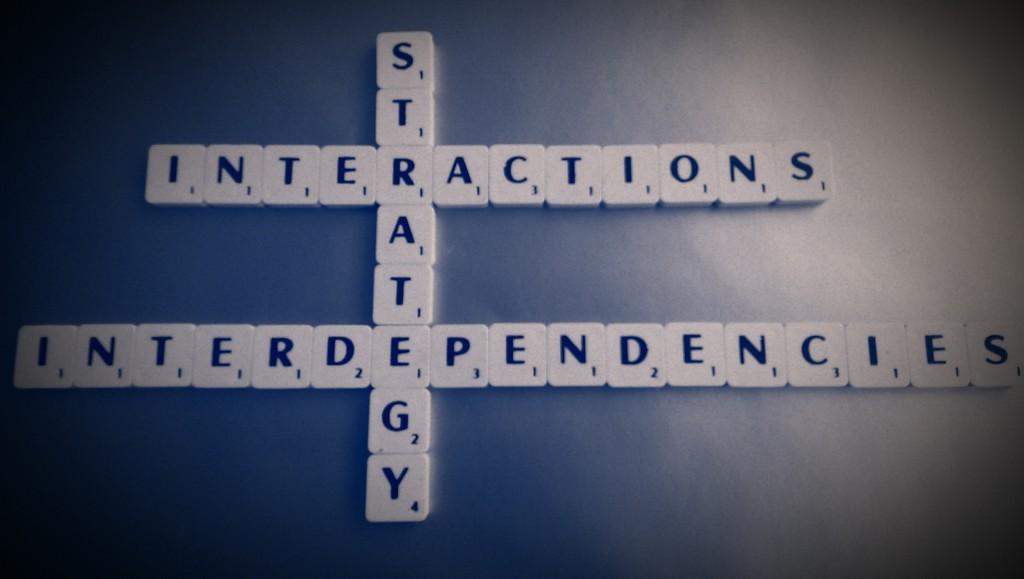 The strategy debate on this blog has come to resemble a major crisis in the South China Sea where the interactions between multiple claimants almost take on a life of their own. What started with Peter Jennings’ argument that Australia’s Department of Foreign Affairs and Trade was not doing strategy, has ended up verging on an exercise in gatekeeping. Brendan Taylor wants us to restrict strategy to the relationship between military means and policy, which then becomes the essential core of strategic studies as an academic subject. But Lance Beath and Anthony Bergin want us to blast the gates wide open so that business organisations, which are even less likely than foreign services to have their own battalions, can be recognised as the keepers of some precious strategic logic.
The strategy debate on this blog has come to resemble a major crisis in the South China Sea where the interactions between multiple claimants almost take on a life of their own. What started with Peter Jennings’ argument that Australia’s Department of Foreign Affairs and Trade was not doing strategy, has ended up verging on an exercise in gatekeeping. Brendan Taylor wants us to restrict strategy to the relationship between military means and policy, which then becomes the essential core of strategic studies as an academic subject. But Lance Beath and Anthony Bergin want us to blast the gates wide open so that business organisations, which are even less likely than foreign services to have their own battalions, can be recognised as the keepers of some precious strategic logic.
My own teaching and thinking has always tended to come down closer to Brendan’s position but for somewhat indirect reasons. Not because strategy should focus on the use of force for political purposes, as to do otherwise risks the incomprehensibility of too wide a palette. Not because, as Nic Stuart suggests, ‘strategy is about victory. … the ultimate reason for war’. And not because thinking about big military capabilities requires what Peter has called ‘a quite deliberative effort’. Instead, I think that the political questions and choices related to the use and threat of force illustrate strategy in its starkest and most vivid form. To understand strategy is to appreciate the interactions and interdependencies of two or more purposeful actors, and we see that displayed most directly in questions of war and peace, coercion and accommodation. That to me is the genius of Clausewitz: not his argument that strategy is the link between war and politics, but the attention he gives to the processes of combustion and restraint that can occur when opposing sides interact, each using force for their sometimes conflicting purposes.
That sort of understanding of strategy requires an external, outward-looking view. Even when we think about strategy as the link between political ends and military means, as Brendan encourages us to, we can still remain too focused on internal matters. This risk is present in Defence White Paper season where questions are encouraged about whether Australia is linking its defence resources to its policy objectives. We see a similar tendency when strategy is taken to be a question of internal coherence, where the concern is over how well our activities are linked to our bigger overall aims. Such dangerously self-regarding logic is often on show when strategic excellence is seen as a function of internal coordination, demonstrated in the excessively optimistic attachment to ‘whole of government’ approaches.
Strategy occurs when purposeful actors interact with other purposeful actors and when they’re anticipating each other’s next moves. That’s why strategy is a state of mind, an interpretation of mine that many of the contributors to this debate oppose but I’m still keen to promote. It’s a question above all of recognising and appreciating the external and interdependent logic of strategy, and then, of course, doing something about that. That’s why some of the most important strategic behavior of any foreign service, to go back to my original post in this debate, can be found in the daily interactions with the representatives of other states. It’s why some of the least strategically significant behavior happens when large organisations become overtaken by internal processes. That’s the reason for Rod Lyon’s observation that defence as well as diplomatic agencies can be found short of strategic thinking. Those same interactions, where another actor’s behavior shapes our own, are why strategy in practice is seldom about reaching the goals that are originally set, and why Freedman’s notion of getting to the next stage is so apt.
Exactly the same question of strategic interaction is evident in the several interlinking crises in the South China Sea. Here we see plenty of strategy going on between and among the main players. It can even be found in the approaches being taken by some players who lack serious resources or a willingness to use much of what they have. Even those who bluff are engaged in an ancient form of strategy. But they’ll need the services of some able diplomatic strategists if they’re to be ready for the next round.
Robert Ayson is professor of strategic studies at Victoria University of Wellington. Image (c) ASPI 2014.